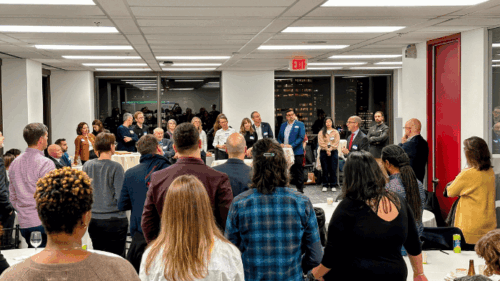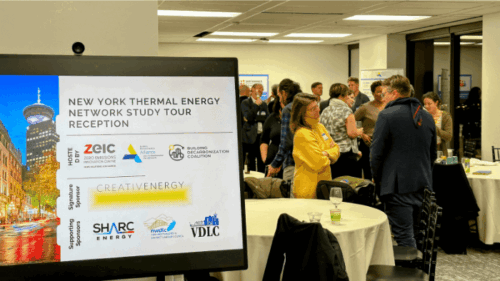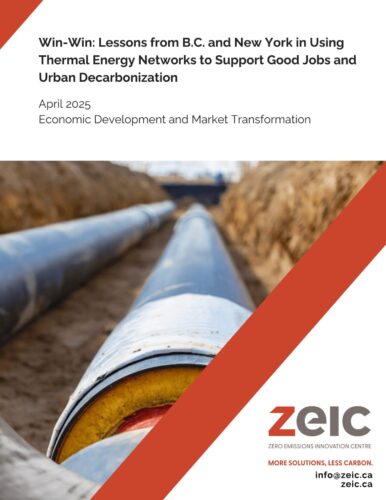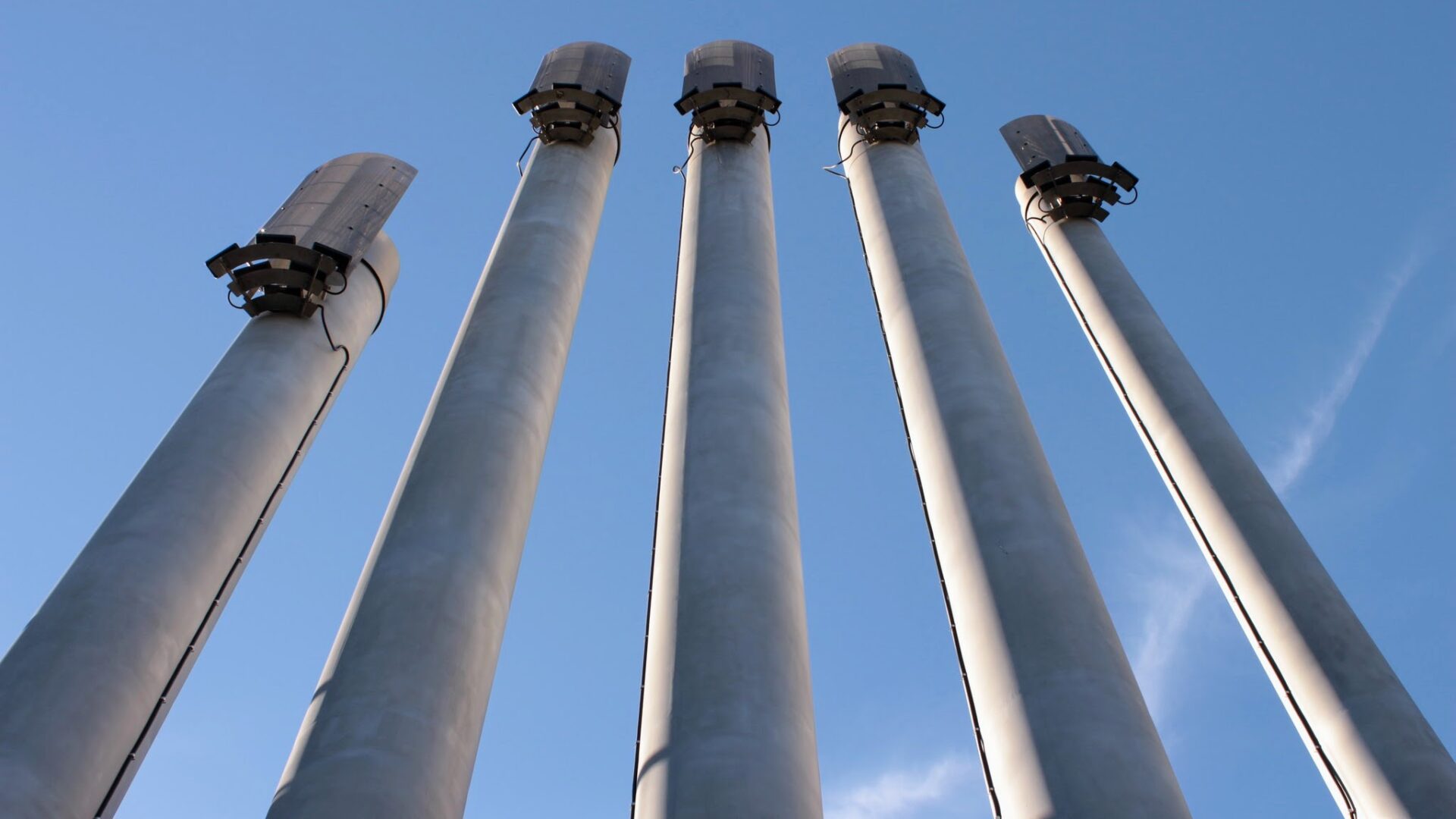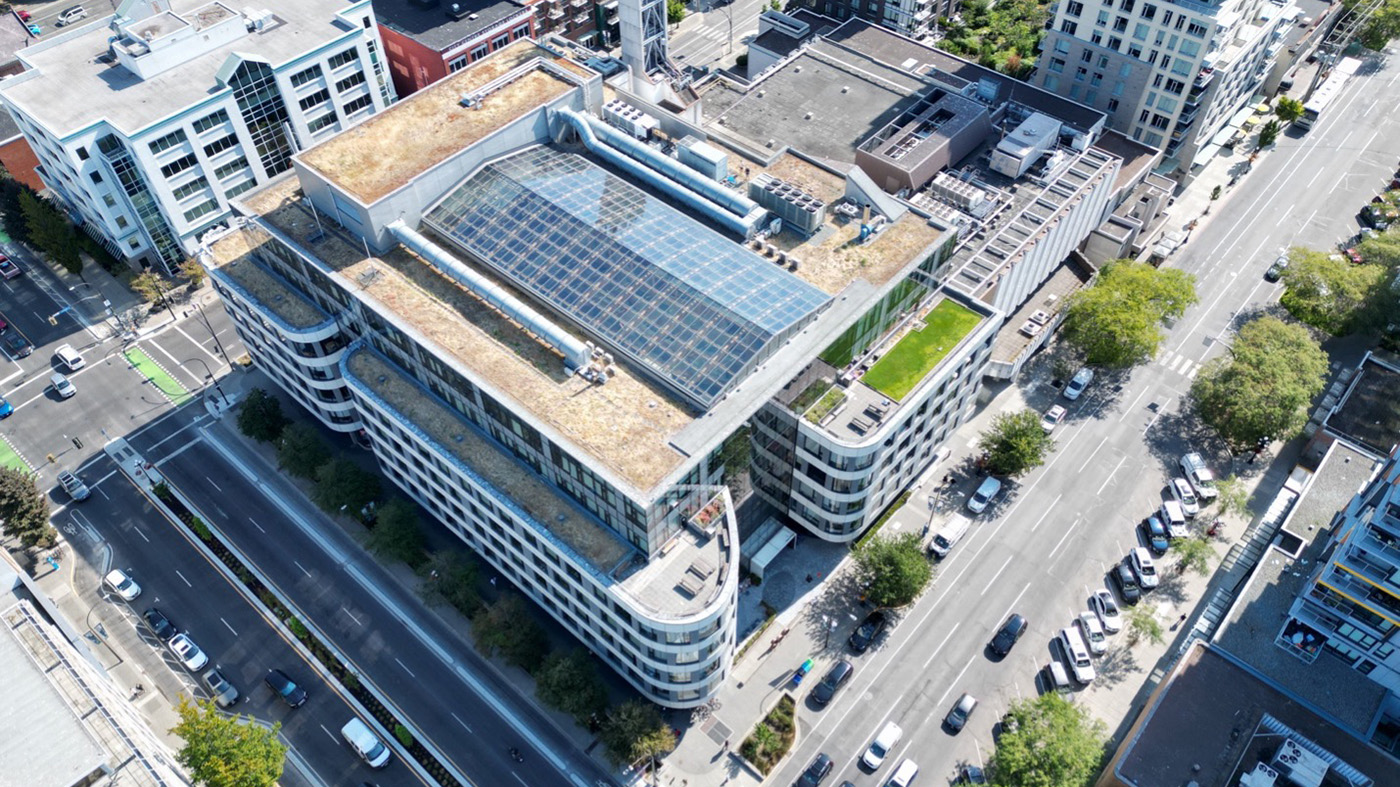
Accelerate Climate Solutions: Join ZEIC’s Board of Directors
February 4, 2025
New Scorecard Highlights Progress on BC Building Electrification
April 3, 2025Partners from opposite sides of the continent engage by sharing quick wins and obstacles to overcome
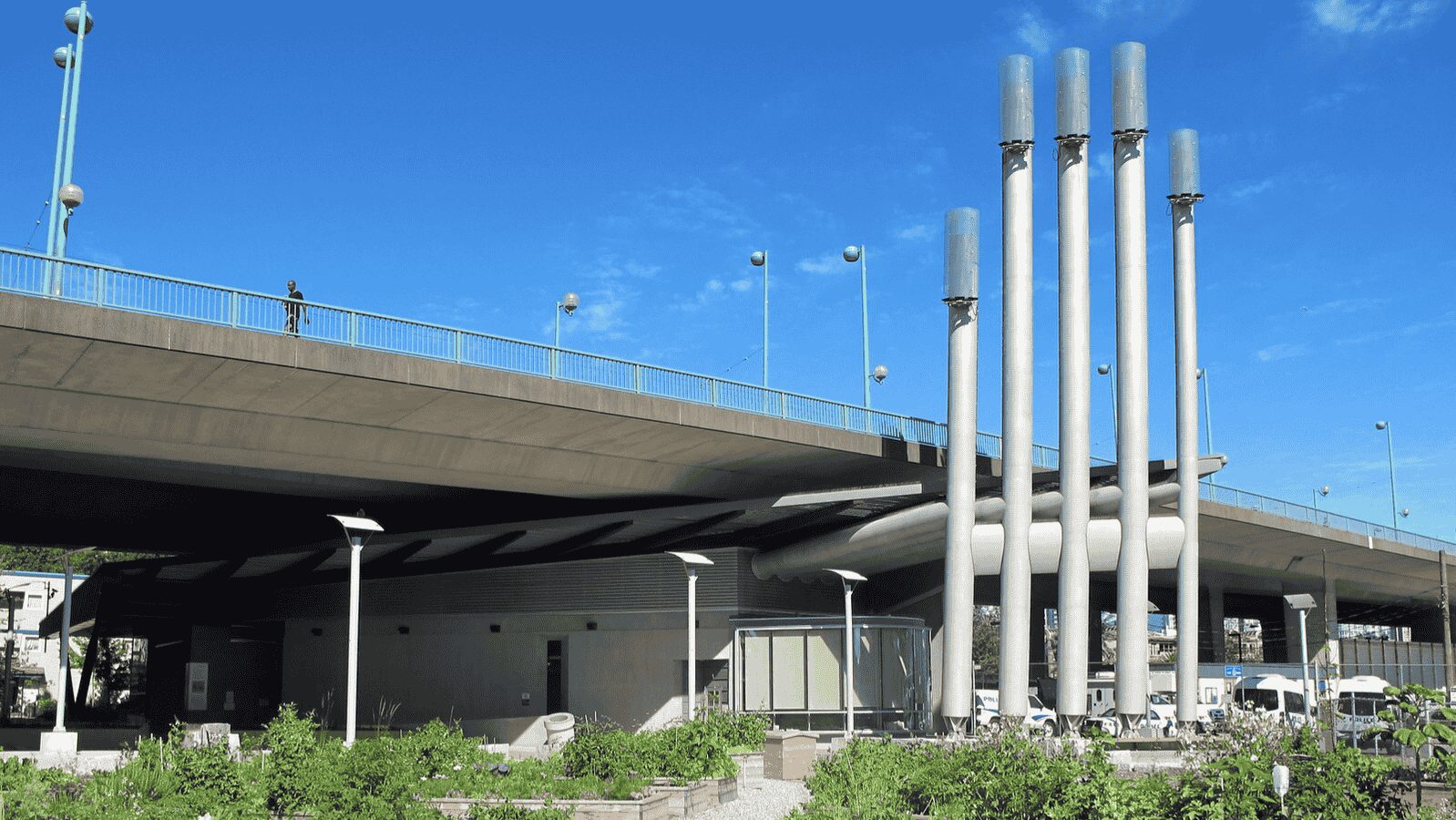
Vancouver Neighourhood Energy Utility. Courtesy of Flickr user canadianveggie
What’s Old is New Again
Modern-day thermal energy networks (TENs) are emerging as a transformative solution for decarbonizing cities – saving money, increasing efficiency, and creating good jobs along the way. Far from the Roman Baths that first defined this unique type of infrastructure, Metro Vancouver’s dozen-plus advanced systems, some including waste-water heat recovery, have made the region into a North American hub for this high-potential solution.
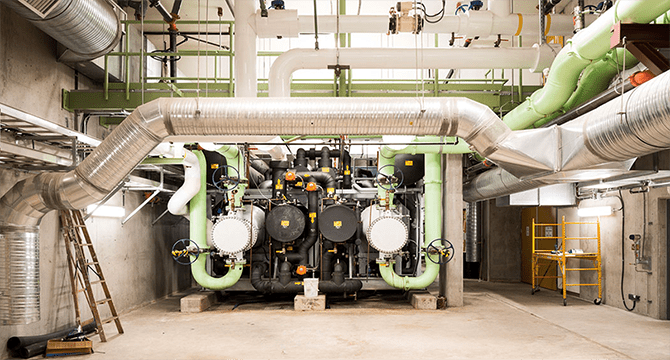
Vancouver Neighourhood Energy Utility. Image courtesy of the City of Vancouver
From November 18 to 21, the Building Decarbonization Coalition (BDC) led a delegation of 16 labour and community leaders from New York’s UpgradeNY initiative, along with guests from across Canada and the U.S., to explore Vancouver’s TEN ecosystem. UpgradeNY is a unique coalition of labour unions, environmental groups, and civic groups working with governments and businesses to transition off of fossil fuels in ways that support gas workers, create more economic opportunities, and empower communities’ energy sovereignty.
This three-day tour, coordinated by BDC, the Zero Emissions Innovation Centre (ZEIC), the Canadian Building Decarbonization Alliance (BDA), and Reshape Strategies featured hands-on learning, dialogues, and knowledge-sharing about scaling TENs in the Metro Vancouver region and across North America. The events on November 19th would not have been possible without title sponsor, Creative Energy, and supporting sponsors SHARC Energy, the Vancouver District Labour Council, and the New Westminster and District Labour Council.
What'd the Building Decarbonization Coalition learn from the trip? Check out their take.
Worker-Centric Transition Dialogues
New York’s UpgradeNY delegation brought unique perspectives on supporting workers in the energy transition. Dialogue participants included representatives from unions, environmental advocacy groups, and social justice organizations like the AFL-CIO New York State, Sierra Club Atlantic Chapter, and We ACT for Environmental Justice. ZEIC invited British Columbian labour leaders, including those from the construction, professional, and film sectors, to engage in a day of presentations and open dialogue.
On November 19, 2024, participants discussed B.C. and Metro Vancouver’s climate policies, the labour market context, and strategies for coalition-building. Key insights included the challenges and opportunities in aligning environmental and labour goals, the need for workforce clarity in the energy transition, and the potential benefits of scaling TENs to create high-quality, unionized jobs.
Report: Win-Win: Lessons from B.C. and New York in Using Thermal Energy Networks to Support Good Jobs and Urban Decarbonization
Emerging Themes and Challenges
- Common language and vision: Environmental groups often approach decarbonization with a systems-level view of the needs of climate change, while labour unions are set up to represent their members’ interests. These aren’t incompatible views – and can be quite aligned – but deep relationships and a shared vision are crucial to cut through perceived disagreements and get to the shared endgame: healthy communities, good jobs, and a clean environment.
- Death by a thousand cuts: Current building-by-building decarbonization models are proving challenging for all involved: many small-scale projects fragment the workforce, often disadvantaging unionized workers; and building-by-building solutions can be more expensive and time-consuming than larger systems-scale answers. Everyone is looking for more faster, more affordable, and more coordinated urban decarbonization solutions;.
- A right-sized solution: Moving away from building-by-building decarbonization approaches to decarbonizing whole neighbourhoods all at once via a TEN can significantly decrease the per-building and per-unit decarbonization cost, while making more space for existing utility workers to bring their expertise to the problem while keeping their jobs. TENs can create a bridge between utilities, the workers in the sector, and the community groups pushing for change.
- The right supports: Many answers to getting more workers into building decarbonization have been focused on short-term, sometimes low-quality or low-applicability training. Supporting workers to navigate decarbonization successfully means, firstly, recognising that many of the skills (e.g., installing pipes) are already well-known, they just need to be applied on the right projects. For workers who do need more support, training needs to come with other supports, like income supplements, and ideally be integrated with building real projects; people can’t just be pushed off into the deep-end.
Promising Solutions and Collaboration
Both New York and BC participants shared innovative approaches. New York’s Utility Thermal Energy Networks and Jobs Act and its Office for a Just Energy Transition offered valuable lessons for BC policymakers on how to push for structural change. Conversely, New York delegates were interested to learn of the work of BC on equipment standards coming in 2030, the voluntary and mandatory building data collected by some governments, and the TENs-related policies used by local governments to, in some cases, mandate “hook-ups” to systems.
For the BC and New York participants, some of the future opportunities to work together:
- Sharing best practices and learnings around labour market forecasting, job-counting, and other data-related exercises through webinars and joint studies.
- Sharing best practices and remaining coordinated on the network and coalition-building that both UpgradeNY and the SWC are practicing in their respective ecosystems.
- Exploring unique ways to pursue blended finance and community ownership of energy systems to further generate community wealth
- Creating easier means of sharing data and smaller case studies between the different networks.
Next Steps
Future collaborations could involve reciprocal learning webinars, tracking coordinated efforts among delegation members, and developing systems for sharing data. In the future, BC hopes to visit New York state with a delegation of its own labour, environmental, business, and government leaders to learn more about that jurisdiction’s approach and marketplace. Overall, the dialogue underscored the importance of aligning economic and environmental priorities to ensure that the energy transition is one that’s fair and prosperous for everyone.


